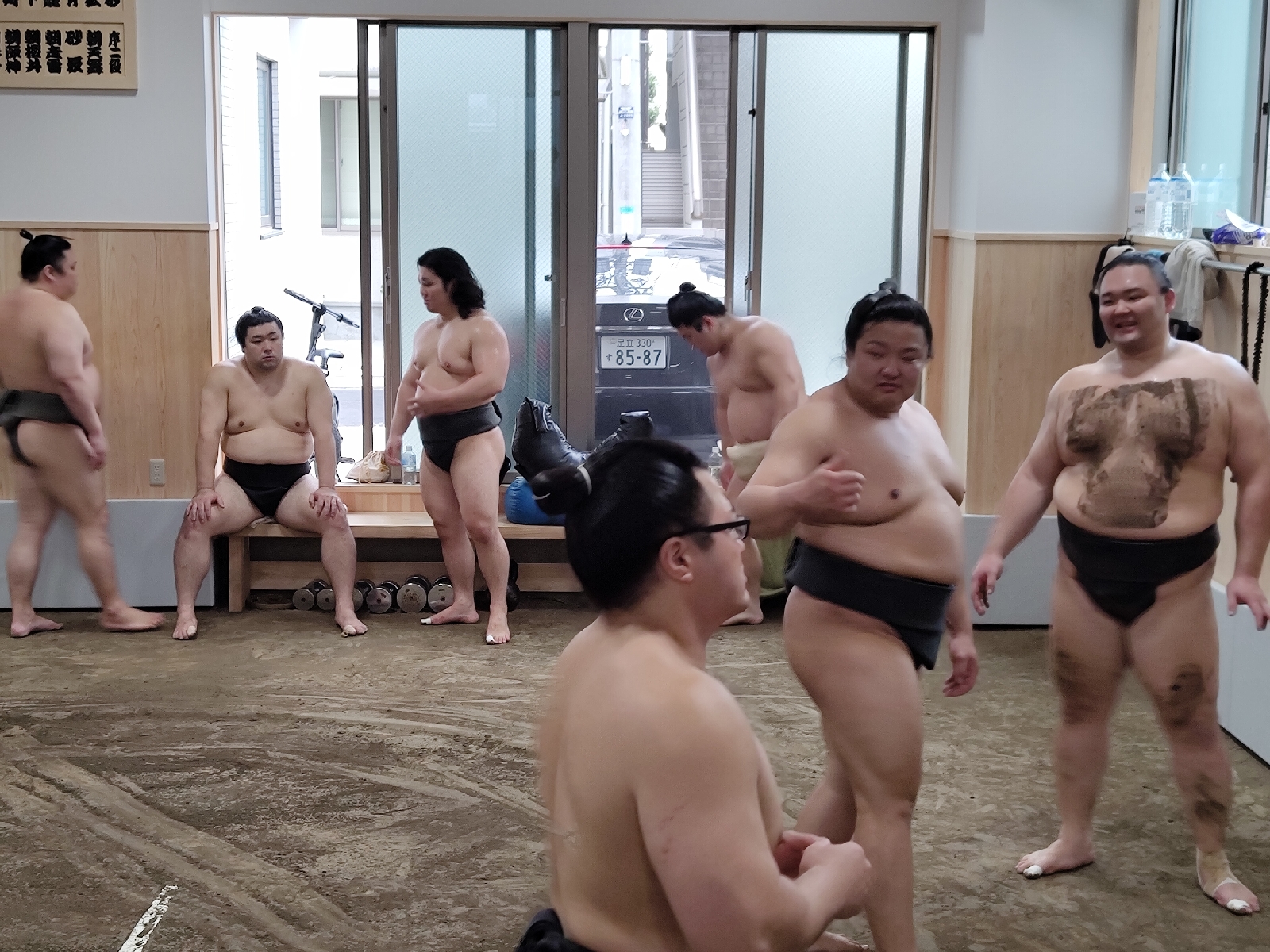Day 2: Sumo & Tokyo Nights
The Disarming Power of a Smile
The first time I realized I was clinging to my own ego like a life raft was when a salaryman bumped into me at Shinjuku Station. He bowed so deeply I thought he might touch the ground, his face a mask of polite horror at the intrusion. I, on the other hand, had been ready to glare—until his smile disarmed me completely. In that moment, I understood something fundamental about this place: dignity isn't about never being wronged; it's about how lightly you wear your pride.
The city was working its magic on me. Each morning, I'd wake with what I came to call "main character energy"—that unshakable sense that Tokyo and I were co-writing some grand story. Maybe it was the way the neon reflected in puddles after rain, or how even convenience store clerks treated my 3 AM pudding purchase with ceremonial gravity.
---
Morning Rituals and Fluffy Eggs
Breakfast became a daily revelation. There's something profoundly intimate about biting into a tamago sando while watching people ready to board trains in the morning rush. The eggs were always impossibly fluffy, the bread yielding like clouds—a small perfection that made my old breakfasts of rushed coffee seem like acts of self-betrayal. I'd balance this with royal milk tea, its caramel depth warming me against the morning chill, and wonder why everywhere else in the world hadn't figured out this alchemy of simple pleasures.
---
Sumo and the Weight of Tradition
The sumo stable visit shattered all my expectations. The air hung thick with sweat and salt as wrestlers—mountainous yet graceful—slammed into each other with seismic force. What looked like brute strength was actually a ballet of tradition, each movement prescribed by centuries of ritual. Their lives fascinated me: the brutal hierarchy, the Spartan living conditions for juniors, the sudden luxury awaiting those who reached the top. It mirrored Japanese society itself—discipline first, rewards later.
---
A Day of Culinary Delights in Tokyo
Lunch was a revelation at a tiny tonkatsu specialist tucked away near Ryogoku. The golden-brown pork cutlet arrived with an audible crunch, its crispy panko crust giving way to impossibly juicy meat. Though richer than I expected—the fat glistening under the restaurant lights—each bite came alive when dipped in the house-made tonkatsu sauce, its tangy sweetness cutting through the richness.
Between sightseeing, I fell into Tokyo's snack culture with abandon. At a street stall, I discovered mitarashi dango—three chewy rice dumplings skewered and glazed with a sweet soy reduction that caramelized slightly at the edges and custard-filled fish-shaped Taiyaki . Nearby, a bakery's melon pan surprised me with its contrast: a cookie-like crust patterned like cantaloupe giving way to airy, barely-sweet bread. Each snack felt like a tiny lesson in Japanese food philosophy: precision, balance, and respect for ingredients, no matter how simple.
Nighttime Thunder: Cars and Concrete
Nightfall brought different adventures. Nothing could have prepared me for Daikoku Parking Area, where I found myself white-knuckling the door handle of a modified RX-8 as we tore through the harbor tunnels. When we arrived, the parking lot throbbed with the heartbeat of a hundred idling engines. Skylines, Supras, RX-7s—each one lovingly modified, their owners exchanging nods of mutual respect. The air smelled of gasoline and ambition as they took turns revving engines, the sound echoing off concrete like mechanical war cries.
---
Tokyo's Secret Second Shift
Walking back that night, I discovered Tokyo's hidden maintenance crews. While salarymen slept, armies of workers in reflective vests emerged. Some power-washed sidewalks with military precision, others repaired roads with tools that looked surgical in their specificity. This, I realized, was why there were no trash cans—the city operated on an unspoken pact of mutual responsibility, where everyone played their part.
---
Finding Home in the Anonymous Crowd
As dawn tinted the sky, I passed a 7-Eleven and got some salmon onigiri, where two Indian students restocked shelves. We exchanged tired smiles—the universal language of night owls. In that moment, I felt the strange duality of travel: the exhilaration of being anonymous in a foreign land, coupled with the quiet comfort of spotting someone who shares your roots.
The Americans might look down on us, I thought, but here in Tokyo, I was just another thread in the tapestry—neither inferior nor superior, simply present. And perhaps that's the greatest gift this city gives: the permission to shed your old skin, to walk lighter, and to understand that sometimes, the most revolutionary act is to smile when you'd rather complain.
The egg sandwiches helped too.





Comments
Post a Comment